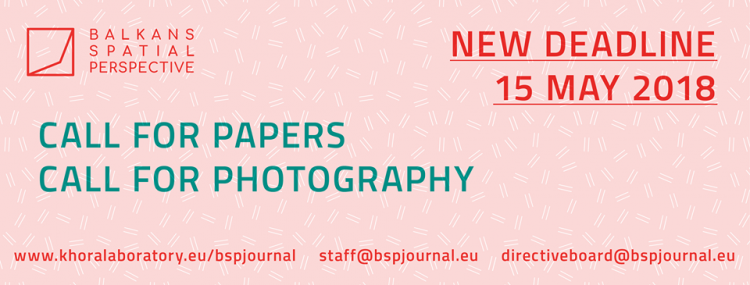
MAIN AREA OF INTEREST
1] SPATIAL PLANNING FROM THEORY TO PRACTICE
Description
Spatial planning accompanied human activity since the establishing of the first embryonal urban structure. Through time, the meaning of spatial planning changed in response of contextual socio-economic condition, by becoming an object of a reiterative process of re-adjustment. Only recently, spatial planning is moving from the traditional attention on land-use planning towards a more integrated approach highlighting its multi-dimensional, multi-scale and transectorial nature. In the Western Balkan Countries the post-socialist and transitional character of planning practices moved from rational (technocratic, scientific and top down) towards the path of communicative approach. However, it is questionable if and how it is implemented in daily planning practice, and if it has any tangible effect on the outcomes of planning.
General topics
The Journal invites authors to reflect on the traditional and contemporary aspects of spatial planning in the Western Balkans Region, in relation to both theoretical and practical dimensions.
Detailed topics
Authors are invited to explore the multidimensional characteristics of spatial planning by developing contributions on planning instruments, procedures, process, concepts, ideas, values, principles.
2] ARCHITECTURE AND URBAN DESIGN
Description
Some would say that architecture is a physical experience, others would affirm that architecture is a political act. For us, architecture is a universal language and an act of optimism based on which each society creates and means or signify itself. In the Western Balkan Region the question of architecture and urban design swings between the term of production and the marginalisation within the academic, societal and political debates
General topics
Balkans Spatial Perspective invites authors to inquire into the complexity of the interaction between architecture and society, tradition and modernity.
Detailed topics
Authors are warmly invited to examine questions like: sustainability and urban transformation, cultural heritage and tradition, architecture and landscape, urban sprawl and informality. Nevertheless, original contributions are welcome.
3] SOCIO SPATIAL TRANSFORMATION
Description
The relation between space and society has always been observed as a fundamental element in defining a purpose of planning. Thus, if planning is about anything, it should be about satisfying the need of a changing societal context. Nevertheless, contemporary relation between the two is enabling new definitions of spatiality and societies; BSP Platform intends to provide understanding on how the changing societal circumstances affect the space, but also how the changes of spatial environment affect societies, by exploring and collecting fresh in-depth analysis.
General topic
The platform invites contributors to report and debate around the multidisciplinary field of social spatial transformation, aiming to deepen the understanding of how the relation of society and space is affecting the Balkans context.
Detailed topics
In this session, authors are warmly invited to reflect on the main socio demographic changes, social movements and spatial transformation, social exclusion and spatial implications and processes of communities inclusions in everyday social and planning practices.



